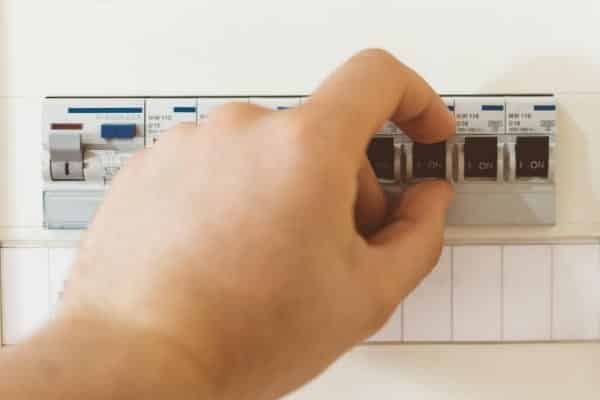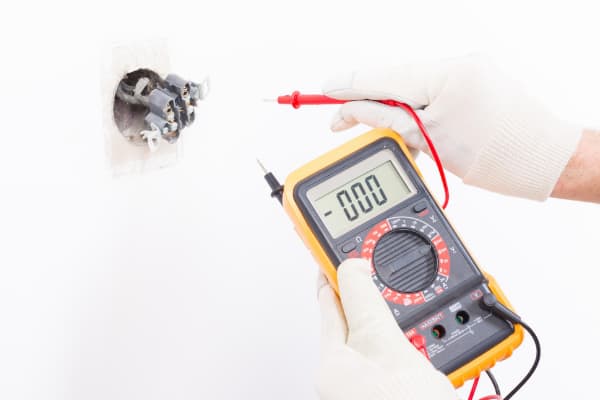Find My Local Expert When is the Best Time to...
Read More
Electricity Outage? Here's What You Need to Do (and What Not to Do)
Power outages can happen at any time, leaving you without electricity. It’s essential to understand what a power outage means and how it could impact your daily life. Power outages can happen due to numerous reasons, such as bad weather, electrical faults, or a surge in power demand. When a power outage occurs, it can cause inconvenience and potential danger for you and your loved ones. It’s crucial to be prepared for an outage and know what to do to avoid any unwanted consequences. In this article, we’ll explore what you need to do to prepare for power outages and how to handle them when they happen. Knowing what to do during an outage can help keep you and your family safe and comfortable until power is restored. Let’s take a closer look at how power outages can impact your daily life and how to minimize any potential damages.
What is a Power Outage?
A power outage occurs when the flow of electricity is disrupted in a certain area, causing the loss of power to homes and businesses. There are many potential causes of a power outage, such as natural disasters (such as storms or earthquakes), problems with the electricity network, or unexpected system failures.
There are different types of power outages that can occur. Short-term outages are usually brief, lasting only a few minutes to several hours. Rolling blackouts involve planned outages where certain areas may have their power shut off for a short period of time to reduce overall demand.

Extended outages can last for several days or even weeks and can result from severe weather events or catastrophic system failures.
Power outages can cause a variety of risks and dangers. The loss of power can lead to a loss of food and water supply, which can be particularly harmful for those who rely on electricity to power medical equipment or appliances. The disruption of electrical appliances can also cause damage and put people at risk. Additionally, power outages can cause health hazards such as hypothermia if heat sources are unavailable in cold weather.
Dealing with a Power Outage
Power outages can happen to anyone at any time. And when they do, it’s essential to stay calm, follow some basic safety tips and know how to keep yourself, your loved ones, and your home safe. If the power goes out, you may lose heating, cooling, hot water, lighting, and access to electrical appliances. Take action with these tips.
#1 Confirm the power is out
Losing power at home can be inconvenient and even concerning, but before you panic, always check if there’s an outage in your area or if there are issues with your electrical system. In case of a power outage, confirm first if it’s a local or regional issue by checking your surroundings. Once you’ve established that there is no other outage around, proceed to confirm the status of circuit breakers and fuses at your home electric panel.
Start by checking if any of the breakers has tripped, which is usually indicated by a switch that has turned off. If you find a tripped breaker, turn it off and then back on again to see if that restores power. If all the breakers are in the “off” position, switch them to the on position.
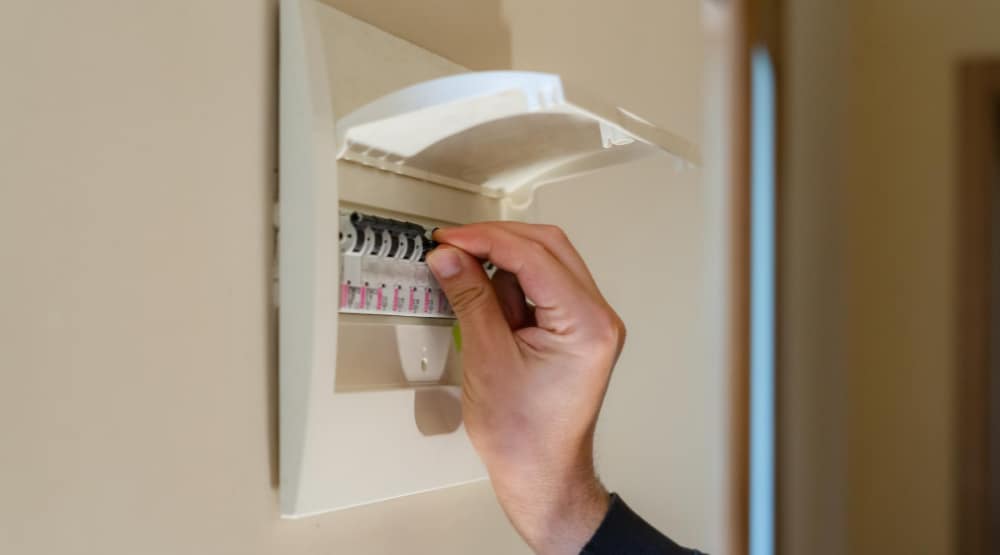
However, if you don’t notice any issues with your electrical panel and still don’t have power, try checking with your neighbors to confirm if they’re also experiencing an outage. By following these simple steps, you can confirm whether the power is out or whether the problem is solely within your household’s electrical system.
#2 Tell your power company about the power outage.
Experiencing a power outage is no picnic, but staying calm and taking action is crucial to your safety and the safety of your equipment. The first thing you should do when you experience a power outage is to contact your utility company immediately. This is especially important if your neighbors’ power is also out, as it may indicate that the power outage is widespread.
If you notice that the service wires to your home appear to be damaged or lying on the ground, do not approach them. Stay at least 10 meters back and notify your electric supply authority right away.
Once you have contacted your utility company, turn off all appliances and electronic equipment, power down your home heating system, and leave only one light on inside and outside of your home. This will indicate that power has been restored when the team arrives to fix the issue.
Remember, stay calm and patient, and your utilities team will work to restore your power as quickly and safely as possible.
#3 Did You Pay Your Bills?
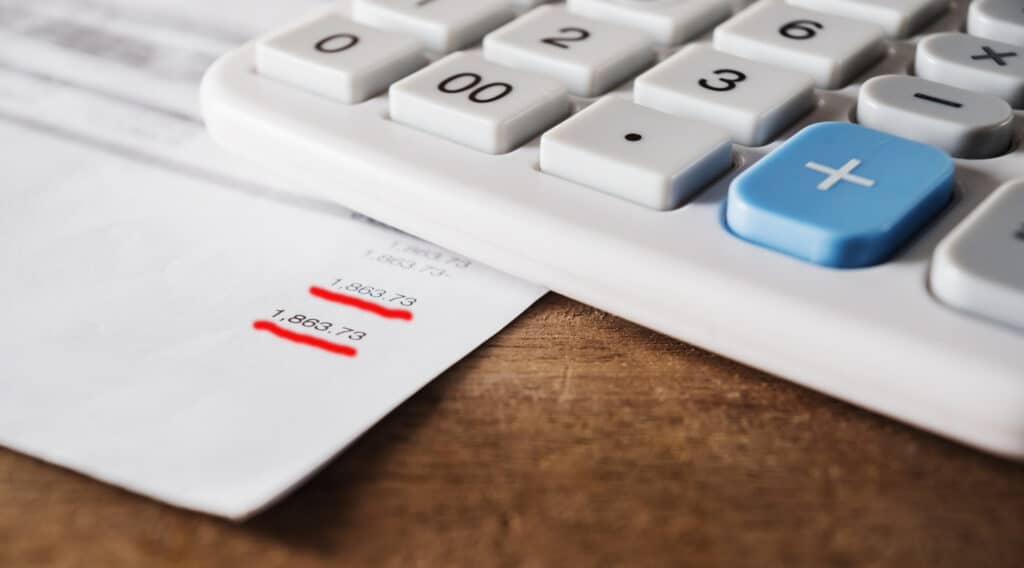
Paying our utility bills is one of those adulting responsibilities that we sometimes overlook. However, not paying our bills can have serious consequences, including a disruption to our electricity supply.
If you have unpaid bills and are worried about the consequences, don’t hesitate to contact your gas and electricity provider. They can work with you to arrange installment payments that are manageable for your budget. Alternatively, seeking help from citizen advice can also be a wise move.
Don’t wait until it’s too late to pay your bills. Ensure that you keep on top of payments to avoid any disruptions to your electricity supply. Remember, prevention is better than cure.
#4 Do you have a Prepaid Meter?
If you have a prepayment meter for your electricity supply, it’s important to know how to keep it topped up to avoid any disruptions, especially during a power outage. Here’s how:
Check Your Balance:
Make sure you regularly check your balance and top up when necessary. You can easily do this by pressing the ‘Display’ or ‘Info’ button on your prepayment meter. It will show you how much credit you have left.
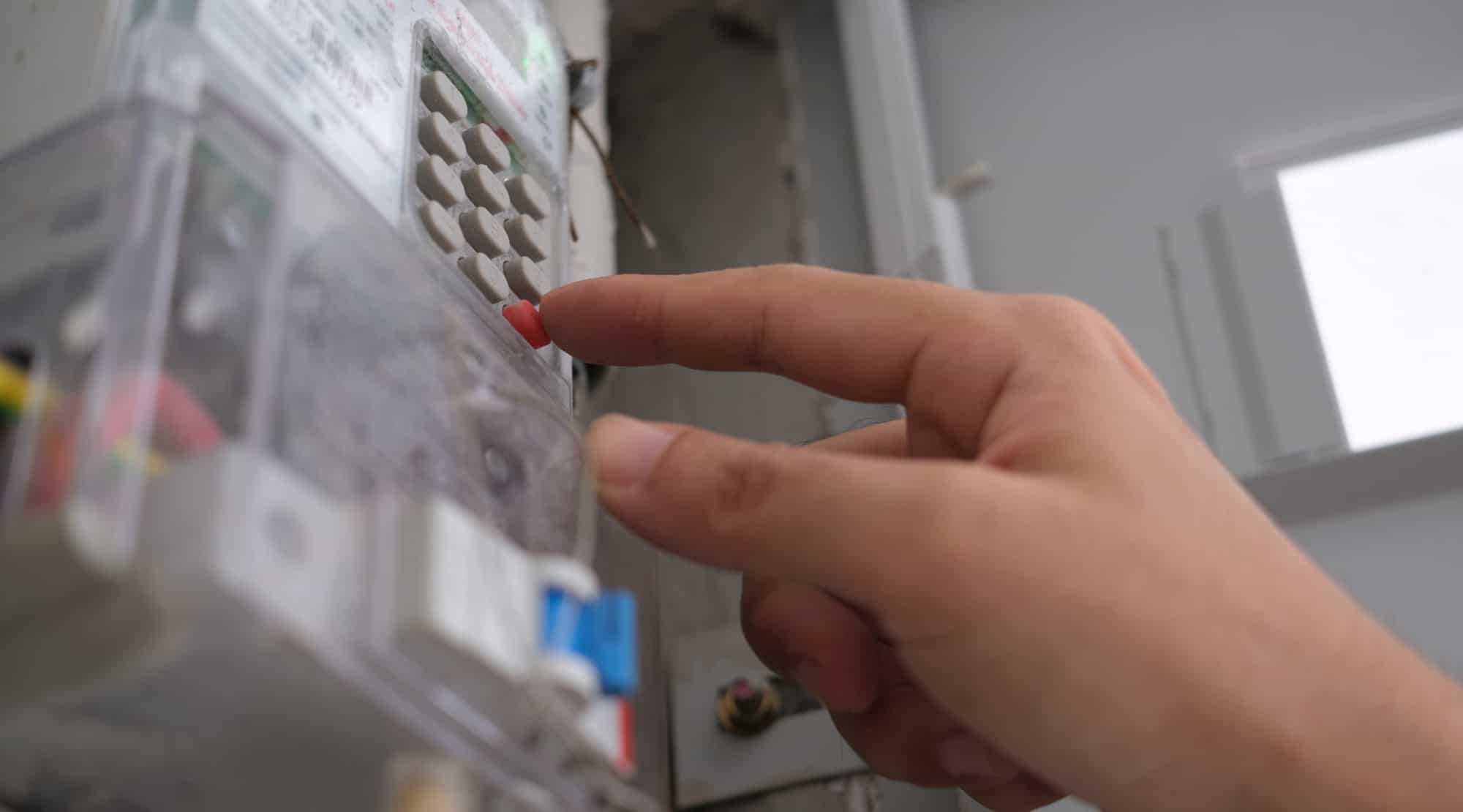
Top Up:
To top up, you’ll need to purchase a top-up card or key from your energy supplier. These can be bought at local convenience stores or online. Insert the card or key into your meter and follow the instructions on the screen.
Faulty Meter:
If you find that your prepayment meter is faulty, it’s important to contact your landlord or energy supplier immediately. They will be able to arrange for a repair or replacement to be made as soon as possible.
By following these simple steps, you can ensure a constant supply of electricity to your home, even during an unexpected power outage.
#5 Have Your Fuses Tripped?
It can be frustrating and a bit confusing when your fuses trip due to an unusual power surge or faulty switch/appliance. Here’s what to do:
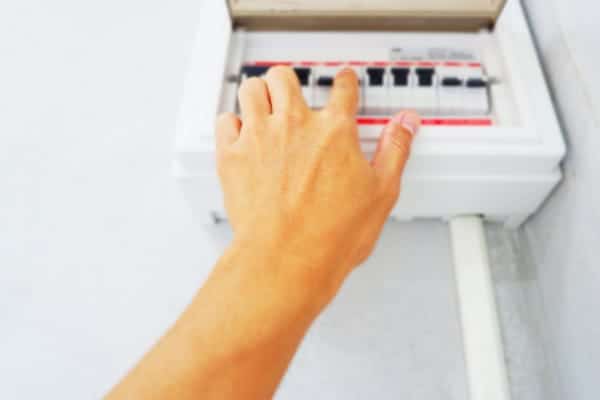
Check Your Fuse Box:
The first step is to locate your fuse box, usually found in a utility cupboard or under the stairs. Once located, open the box and check if any of the switches have tripped down. If so, flick all the switches upwards, including the main fuse.
Find the Faulty Appliance or Switch:
If the switch turns off when it is upright, there may be an issue with either the switch or the appliance it powers. Disconnect the malfunctioning appliance or turn off the defective switch before trying to use it again.If the switch stays upright and does not shut off, then the problem has been resolved.
Consider RCDs:
It’s worth noting that some fuse boxes might also contain RCDs (residual current devices), which are designed to protect you from electric shock. If your switch won’t stay upright despite trying to fix it, check to see if an RCD has tripped down and try to reset it by flicking the switch upwards.
Remember, if you’re unsure or feel unsafe about your fuse box, contact a professional electrician for help.
During A Power Outage
During a power outage, it’s important to take the necessary steps to keep yourself and your home safe. Here are some essential actions to take:
Check the Service Wires:
Before doing anything else, make sure to check the service wires leading to your home. If you notice that they’re damaged or down, stay away and contact your electricity supplier immediately. Also, turning off all electronics will prevent damage from power surges when the power comes back. However, keep one light turned on inside and outside the house to notify you when the power has been restored.
Avoid Unsafe Practices:
During a power outage, it’s crucial to avoid using charcoal or gas barbecues indoors as they produce carbon monoxide that can be harmful to your health. Also, make sure you use proper candle holders and avoid leaving them unattended. They can cause a fire and be a hazard to you and your family.
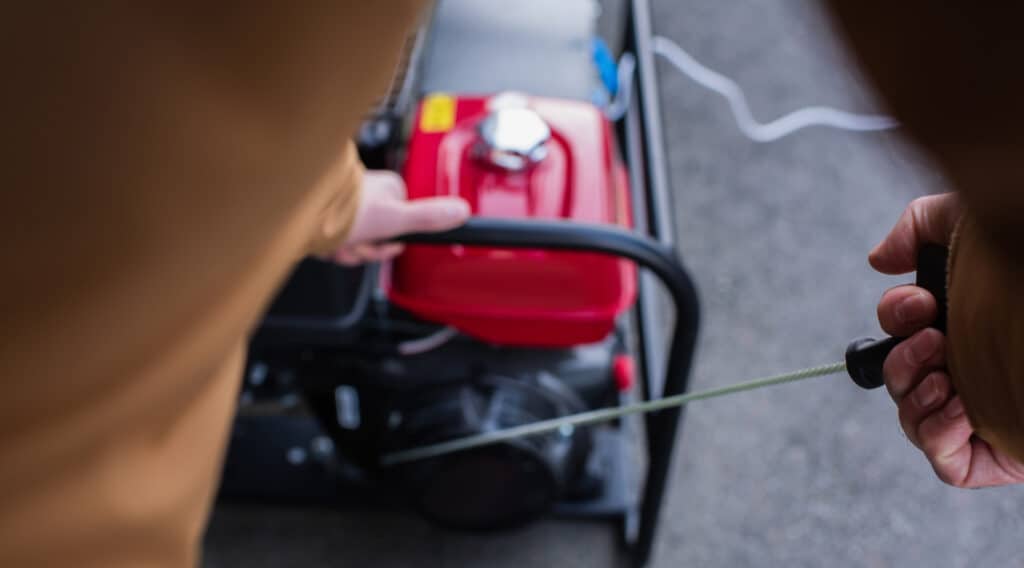
Operate a Backup Generator Safely:
If you have a backup generator, it’s essential to operate it safely. Make sure to follow the user manual carefully and to place it outside to avoid carbon monoxide buildup. Proper ventilation is a must to prevent harm from the generator’s exhaust fumes. Finally, always shut off the generator and let it cool before refueling.
Remember to prioritize safety during a power outage and take the necessary actions to keep yourself and your family safe.
Be Prepared for Any Outages
Power outages can happen at any time and can leave you without electricity for hours or even days. They can be caused by weather conditions, electrical faults, or maintenance work on power lines. During this time, it’s important to have a plan in place to keep you and your loved ones safe and comfortable. Here are some practical steps you can take to prepare for any outages and ensure you’re ready for when they strike.
Create A Plan for Emergencies.
When it comes to power outages, the old Boy Scout adage, “Be Prepared,” couldn’t be more true. The best way to prepare your family is to have an emergency plan in place. This plan should outline what you and your family will do in the event of a power outage or other potential emergency situations.
The first step in creating an emergency plan is to identify potential emergency situations. Ask yourself questions like, “What would we do if the power went out for several hours?” or “What if there was a major storm that knocked out power for days?” Once you’ve identified potential scenarios, make a list of what needs to be done ahead of time.
This list should include things like storing important family documents in a waterproof container, identifying an out-of-town contact for emergency situations, and preparing an emergency kit with necessary supplies like flashlights, batteries, and non-perishable food items.
Create a plan that is specific to your family’s needs. Discuss it with everyone in your household, and make sure everyone knows what to do in an emergency situation. Keep your emergency plan in a visible place, like on the fridge, and update it regularly as needed.
Remember, being prepared for an emergency situation can make all the difference. Make an emergency plan today, because you never know when you’ll need it.
Create an Emergency Kit.

When preparing for a power outage, one of the best things you can do is make sure you have an emergency kit ready to go. An emergency kit will ensure that you have access to the essentials you need when the power goes out. Here are some items you’ll want to include in your emergency kit:
Water: Store one gallon of water per person, per day. This should be enough to last for at least three days.
Food: Stock up on non-perishable food items, like canned goods, that don’t require cooking. Make sure you have enough food for at least three days.
First Aid Kit: Purchase a basic first aid kit and keep it in your emergency kit. This should include bandages, gauze, antiseptic wipes, and pain relief medication.
Flashlight: Keep a flashlight with extra batteries in your emergency kit. This will help you navigate your home in the dark.
Store your emergency kit in an easily accessible location, like a closet or under the bed. Make sure the kit is easy to carry in case you need to evacuate your home. Remember to check your emergency kit regularly and replace any expired items. By having an emergency kit ready to go, you’ll feel much more prepared for a power outage.
Have you ever considered what power network you are connected to? Knowing your power network provider can come in handy during a power outage or if you need to report an issue with your electricity supply.
Electricity Network Operators
Electricity network operators are the ones responsible for managing our power supply. They manage the delivery of electricity to homes and businesses through Distribution and Independent Distribution Network Operators (DNOs and IDNOs).
DNOs are the larger of the two and manage the distribution of electricity for a specific geographical region in the UK. There are six DNOs in England and Wales – Electricity North West, Northern Powergrid, UK Power Networks, Western Power Distribution, Scottish and Southern Electricity Networks, and Scottish Power Energy Networks. In Scotland, there are two DNOs – Scottish and Southern Electricity Networks and Scottish Power Energy Networks.
On the other hand, IDNOs are smaller and can operate across multiple regions. There are currently eight registered IDNOs in the UK.
The Energy Networks Association is responsible for regulating electricity network operators and ensuring that they provide safe and reliable services. Without electricity network operators, we would not have access to the power that we need.
Conclusion
Power outages can be frustrating and at times dangerous, but with a little preparation and knowledge, you can navigate these situations with ease. Remember to have a well-stocked emergency kit ready, keep your phone charged, and have a plan in place for any medical equipment or special needs. Also, don’t forget to stay calm and be patient as power companies work to restore electricity. By following these tips, you will be able to handle power outages with confidence and stay safe until the lights come back on.
You May Also Like...
When do you Call Your Power Company or the Electrician?
Find My Local Expert When do you Call Your Power...
Read More9 Appliances That Can Trip Circuit Breakers
Find My Local Expert 9 Appliances That Can Trip Circuit...
Read More7 Things You Can Do Before The Emergency Electrician Arrives
Find My Local Expert 7 Things You Can Do Before...
Read More5 Reasons Why Your Appliance is Tripping the Fuse Board
Find My Local Expert 5 Reasons Why Your Appliance is...
Read MoreNeed Help With Your Electrics?
My Trusted Expert Guarantee
Experts Have Been Vetted & Approved
